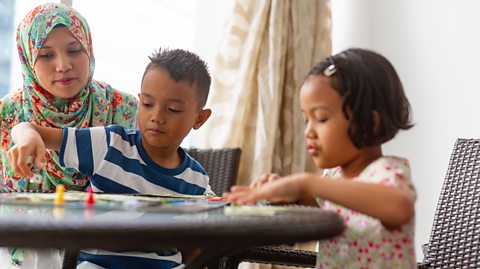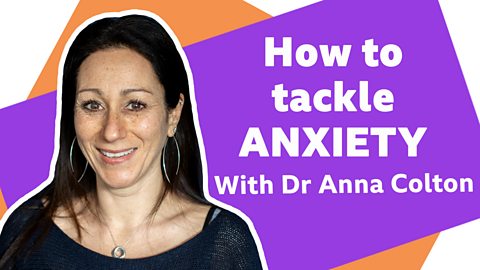by Dr Anne Emerson, Associate Professor in Special and Inclusive Education at the University of Nottingham.
Autism is a very broad spectrum, and those who are autistic have a wide range of varied characteristics, just like all children. However, there are a number of aspects that many autistic people will have in common. One of these is a need to be clear about what is going to happen and to know what is expected of them. This can be seen as an âintolerance of uncertaintyâ where unfamiliar places or events can cause anxiety.
This goes along with some challenges of socialising with other people because some aspects of communication, either the verbal or non-verbal aspects, or both, are difficult to understand or to do.
Most children who are identified as being on the autism spectrum, or who have autistic traits, attend mainstream schools. All schools have rules, which can often help autistic children to know what to do. However, unexpected things frequently happen, and when they do, autistic children tend to feel uncomfortable or frightened.
These tips will help you to support your child to feel safe and confident at home and at school. First, I will offer advice for children in mainstream schools and then tips for children in special schools.
Top tips for parents of autistic children in mainstream schools

1. Keep your home calm and predictable
Children who start the day with a regular routine, in a calm and patient atmosphere, tend to arrive at school in a good state for learning. Routines for self-care can help children to build independence. Rather than worrying that your child insists on sameness this can be seen as something that helps them. When children return from school they may be very tired and need some quiet time before they tackle homework, or fresh air and exercise may be a helpful âde-stressorâ.
2. Have something to look at
Use visual cues and prompts to help your child understand and ask the school to do the same. To help them get dressed in the morning, you can create a chart with photos showing what to put on. It can also help them remember to clean their teeth and perhaps you can even add the time to do each task (in a way that they can understand.)This will reduce the amount of prompts you need to give. When your child comes home, let them know what they can expect between then and bedtime and you can talk through what theyâll be doing during the week.

Warn your child of any necessary changes in advance.
All routines need to change from time to time, and especially at weekends or school holidays. Many children will find it helpful to have advance warning of what will be happening, although how much warning is something you will need to discover.Children may benefit from story scripts, written for them individually, to explain what is likely to happen and what is expected from them. Once the story is written, and perhaps has pictures or photos added, your child can look at it whenever they want, and you can offer it to your child when they need reassurance. There are some useful apps available on tablets that help with creation of story scripts.
4. Be aware of the environment.
Many autistic children experience the world differently as their senses can give them too much or too little information. Some aspects of the environment, such as the buzzing of a light, may cause considerable discomfort even if most people can ignore it. The way your child behaves might be a clue to something in the environment that bothers them, such as a noisy and brightly lit supermarket. When you see a sudden change of behaviour, perhaps your child becomes upset or withdrawn, examine what it is in the environment that might be causing the change.

5. Speak to kids in clear sentences and give them time to understand
When someone does not instantly understand what we have said, we tend to quickly repeat, often using different phrasing in an effort to help. Many autistic children may need a longer time to process the meaning of what has been said. The best way to help them with this is to wait longer than you would usually do before repeating, and then if you do repeat, use the same words as the first time. It can also help if you break down instructions into small sections so that your child can process each part of something complex separately.

Top tips for parents of autistic children in special schools

Some autistic children can find managing in a mainstream school difficult and even distressing. Special schools can offer smaller classes, more individual instruction, and a staff with greater awareness of the specific needs of your child. Schools will be keen to have regular contact with parents and will tell you of the approaches they find successful with your child. There is a great deal that parents can do at home to support their child and their school.
1. Believe that your child wants to be with you.
One of the biggest challenges that parents face is with a child who does not appear to want to be with other people. The historical view of autism was that autistic people wanted to spend their time alone. Many autistic people have since contradicted this, explaining that being with other people can be uncomfortable and challenging, and this leads to them withdrawing. When you are able to be in a calm, quiet and comfortable environment, your child will probably be very happy to be with you, and this can make space for building a positive relationship and some of the skills below.

2. Find time to play.
It can be difficult to play with an autistic child if they donât immediately respond to you, however, most of the skills that children need in order to communicate and learn come from playing. Turn-taking is a very important skill especially for communication. To encourage your child to play with you, start by following their interest and allow the child to take the lead. By gently joining into their game, you help your child to increase their tolerance of what you are doing. Over time they may be willing to follow your lead, and you can gradually build up taking turns at doing something together.
3. Pay attention to eye contact.
Many autistic children will not naturally make eye contact with others. Parents may find this difficult, particularly because it can give the impression that the child is not listening and try to encourage their child to do it. Some autistic people have reported that making direct eye contact causes discomfort, or that when they do look at someone this makes it more difficult for them to listen to what is being said.
Teaching eye contact therefore needs to be done very carefully, if at all. It is important to be aware that sometimes this makes it more difficult for them to pay attention. Encouraging eye gaze to a shared interest, such as reading a book together, may be less uncomfortable for your child.
4. Support communication
If your child does not speak, or cannot say much and struggles to understand or make themselves understood, using visual materials will be very important. When you want to explain something, or ask your child a question, having a picture of what you are talking about is important. Your childâs school will probably use photos, symbols and maybe hand signs â ask them if they will give you copies to use at home and provide training for you. Many children are good at learning to recognise written words too, you can build a sight vocabulary by sticking words onto the relevant items in your home.

5. Encourage kids to communicate about their needs and other things
When children have limited communication, there is a tendency to focus efforts on prompting them to tell you what they want to eat or do or explain how they are feeling. For some children this may work well as motivation, however others may find this a pressure, and communicating about something less important may allow them to feel more relaxed and lead to more success. A minimally verbal child might be able to copy words, particularly those they hear often in a favourite TV programme or game. Research suggests that these sorts of phrases that a child might use repetitively can be encouraged and expanded to support the development of speech.
6. Use prompts but work towards independence.
For many autistic children, doing things alone can be difficult and you may need to help them with tasks that they do often - even ones that may appear to be simple. The sort of prompts that you use are important in gradually building their independence. Using routines, with visual supports, in a consistent manner will be helpful, and try to keep what you say to a minimum. Physical prompts such as pointing or gestures are easier to reduce and fade, leaving your child with the ability to complete a task alone or with minimal help.

7. Make the most of new technology.
There are many free apps that families can use, if they have a tablet, to promote learning and fun. Many autistic children find tablets motivating and engaging. This can be helpful to parents when they need their child to occupy themselves. Technology also provides opportunities for games and shared activities, with parents and other children.
8. Celebrate the small changes
Children who attend special schools may make slower progress than other children their age, but each time they do something for the first time is a cause for celebration. Some children will enjoy loud praise and excitement. For others, this can be overwhelming and a quieter response will help them feel good about themselves and build confidence. You will know what your child is good at and youâll be able to give them opportunities to do well and receive the kind of positive response they like.

Further information on autism can be found here on ±«Óătv Teach and the National Autistic Society has an

More from ±«Óătv Bitesize Parents' ToolkitâŠ
Parents' Toolkit
Fun activities, real-life stories, wellbeing support and loads of helpful advice - we're here for you and your child.

Stories and advice about parenting and autism. collectionStories and advice about parenting and autism
A collection of articles with tips for parents of autistic children - covering diagnosis, schooling and personal stories

Mental health first aid kit for parents: Who to ask and what to do
Worried that your child needs help with their mental health? Here's how you can access professional help and support your child while you wait.

How to tackle anxiety with Dr Anna
Calming techniques to help parents and children manage their anxiety.

How can I talk to my kids about their emotions? - The Super Tutors
Natalie Costa, aka 'The Child Whisperer', explains how you can talk to your child about their feelings and help them manage their emotions.

Christine McGuinness - How my autism can help me to help my kids
Christine McGuinness talks about the positives and challenges she's faced through her life as a mum since diagnosis.
